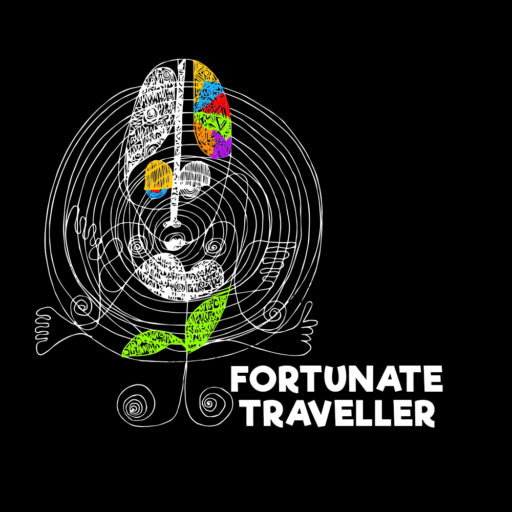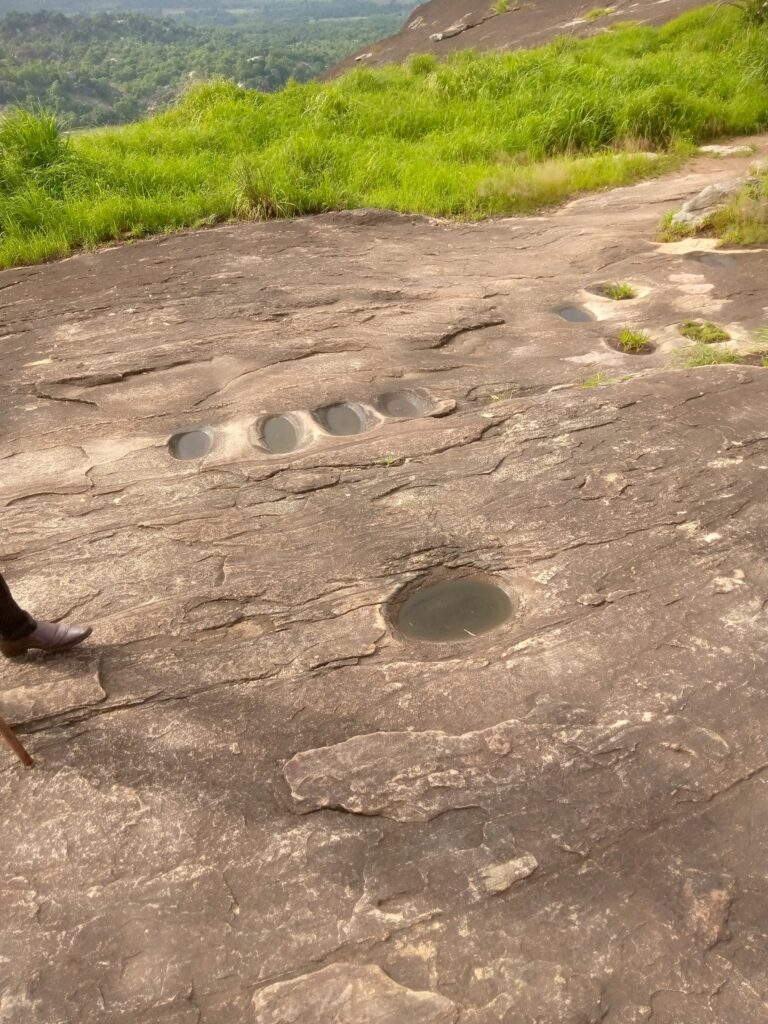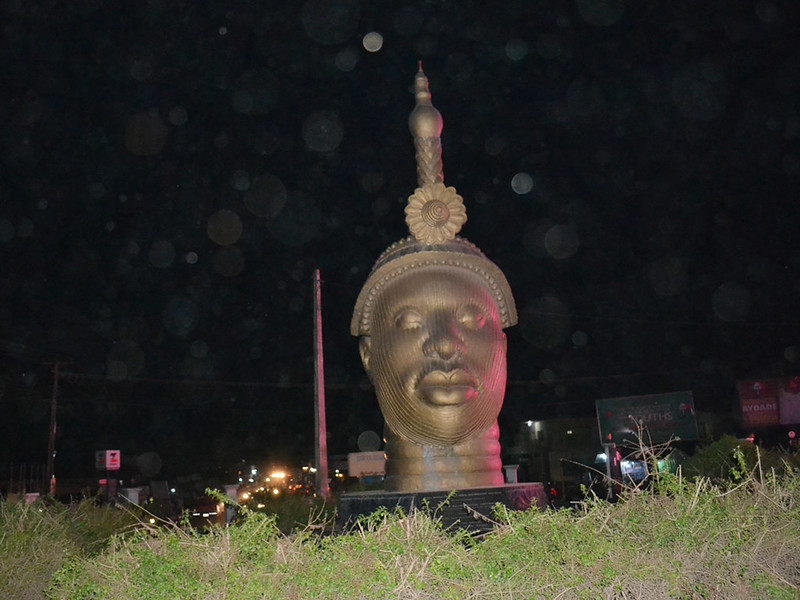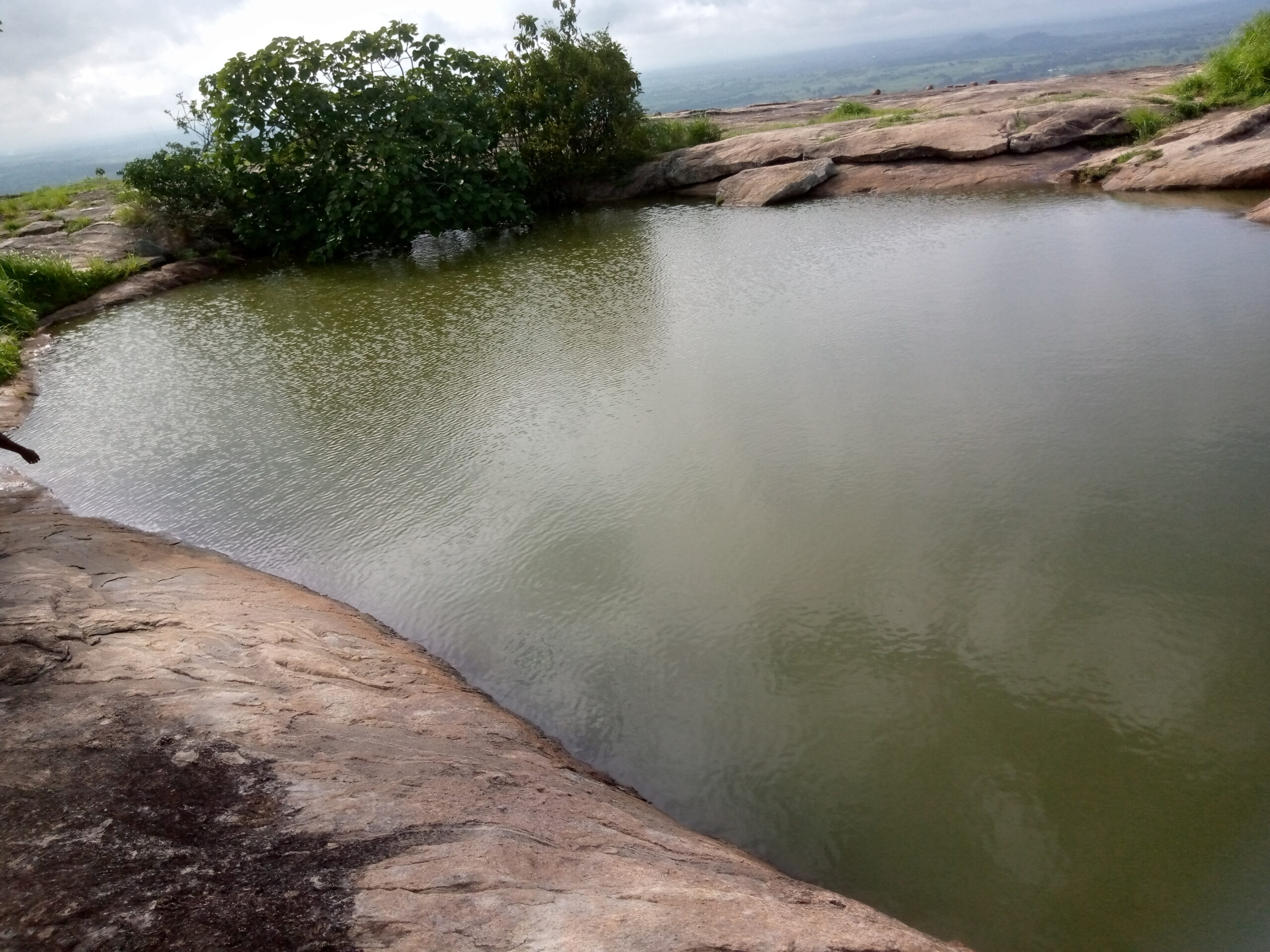
Leaving is self-abnegation; something always wants you elsewhere. Once, when I was fifteen, I spent a week away from home. My Mum clutched me tight the afternoon I returned. I’d suffered where I went – starved, wandered, and begged. She knew; I knew; everybody knew. At night, I lay my head on her lap as she popped my pimples. ‘My child has suffered,’ she told my brothers, with her small smile. ‘My child has suffered.’
When I applied for the Ebedi International Writers Residency, I knew two things: I suffer each time I leave home; and I didn’t want my Mum to worry. However, I was also thrilled by the idea that I’d have a room all to myself in order to write. So, when the acceptance came, after a brief call with Dr Wale Okediran one night, I told my family. ‘You can’t go,’ my brother said. I looked at my Mum but couldn’t understand her indifference. Probably that settled my brother’s protest.
The next day, just before the sun came up, I had packed my things ready to leave. I had been packing since 4 AM, worried I would surely forget something, studying the relics of things in our room. My Mum knows how to do this better than I do. She knows how to pack my life in place before I travel. She would peck me, look at me as though I was seven, and slowly tuck things into my bag. And she never forgot anything. But this time, my Mum was not there when I left.
Though now that my eyes were set on Iseyin, thrilled I would surely complete my novel there, though my brother saw me off while the sun was just coming up in the compound of my life, these didn’t ameliorate the self-abnegation leaving means in my life.
. . .
My Mum’s face returns to me as I write this: pale, half a metre deep in sockets outlined by sheer fortitude, eyes that don’t seem really happy. Two weeks before I left home, she had said, ‘Isaiah, I am getting tired. My strength is leaving me.’ Two weeks into the residency program, she called me again and said those words. Except that this time, the circumstances surrounding the statement left me nude in my room. My brother was struggling again.
She had called to inform me of my brother’s attempted suicide. For an hour after I dropped the call with my Mum, I lay on the bed. My laptop, my Oxford Dictionary, my Kindle, and books from the Residency’s mini-library lay beside me. Everything seemed to slow down. I went to the bathroom. I fiddled with the showerhead. Turning it around me, like a sash. Bathing felt like torture. I wondered why I wasn’t crying over the news. I studied my hands; goosebumps spread over my skin. I tried to force myself to cry. I really tried. It felt comical – though, I knew it wasn’t. I dropped the showerhead into the bathtub and lay on the bed, nude. It felt like the water had washed away my contrition.
I myself struggled with writing; nobody knew this. And even though Eze Ifeanyichukwu’s words buoyed me for a while, the misery was personal. Three days after I got to the residency, I and another fellow had a slightly elaborate breakfast with Dr Okediran, some other intellectuals and a few community leaders at the foot of the Ebedi hill under a large mango tree in the compound. My mind was not exactly there. I’ve made a mistake by applying, I thought. Now everybody will know you’re writing a sham novel. Later, I slipped into the ‘Chinua Achebe’ room. I charged my laptop. I arranged my clothes in the wardrobe. Then I sat before the laptop. I am ready to finish this story, I thought. At the time, it was 130k words. I knew exactly what to write to complete the novel. But like my Mum, I too was tired. My strength was leaving me.
There were days I looked at the overshadowing Ebedi hill and questioned what I had come to do so far away in this town. Iseyin is a small place cluttered with goat and cow shits and greens and hills and slanted bumps and sharp corners and brief exchanges of electricity poles. It is a solid town with an air of people whose lives flourish. I was immediately an antithesis. To be in a place called the White House by the locals felt criminal.
. . .
I am confounded by happiness.
I believe happiness is as abstract as nicotine’s effect; both ephemeral. Nothing is truly happy. Nobody is even in part happy. I believe happiness is the opposite of living; you can’t be happy and live at the same time. Because to declare a state of happiness is a façade, to avoid the realistic, the less pleasant, for one’s mind’s sake. Sometimes this denial infuriates me. Sometimes I sit and watch how happiness slowly diminishes. ‘See,’ I would say. ‘Now you’re sober. But where is your happiness? Who took it away?’
I grew up in circumstances I couldn’t control. Often, I knelt and cried. I just wanted everything to stop, even for a minute. It never did. Things I didn’t like came, and things I did like went. I remember we once fled to my cousin’s house in 2008 at Filin Jirigi in Gusau, Zamfara. Then we travelled to Kaduna and set down a bed, a few plates, a mortar, blackened pots, and two stoves. My happiness was to be back at Zamfara, in our house, going to my school, being happy.
I had a problem with my classmates in Kaduna. I was eight or nine years old. I was in Primary Five. I didn’t have a school uniform or sandals, so I wore casuals. My classmates taunted me. My Mum taught Primary Four at Marylyn Model College, the same school I went to. One day, after a boy bullied me, and I tried to fight back, my Mum whipped me until I caved in.
I fought our neighbour’s son again in the neighbourhood. He taunted me, too. He called me a Hausa boy. We’d left my Dad then in Zamfara. And this boy who had a father who doesn’t leave taunted me and I tried to fight back. An older person in the neighbourhood, a deaf-mute, beat me and wrecked my bones in the process.
I got back home to our one-room apartment. I wanted to tell my Mum I miss my father. I was nine; having the father I wanted beside me wouldn’t be too much. But I remembered one afternoon when I was eight, I was standing at the doorway in Gusau when my father had been strangling my mother, and I didn’t cry or run or do anything. I just stared. I truly believe it was the first time I left my own body. When my leaving began.
I finished the novel early. 185k words. It didn’t feel good enough. But I was sure I ended it well, partly because the end wasn’t foreplanned. My target was 200k words. At 170k words, the puzzle fitted perfectly. So I typed on. And at 185k, I stopped. I thought it would bring me some happiness. It didn’t. I told one of my friends about it because he’d read a flash excerpt of the novel on Salamander Ink and had given me a brilliant review of it – I held his trenchant remark of the novel tightly. He said that I write about heteronormativity, a piece of the puzzle. I told him briefly about how the eight characters in the novel were fictitious characters in the mind of the protagonist who’s surviving conversion therapy in Lagos.
. . .
I will miss The Ebedi International Writers Residency and the suspended lake – called Agbomofunyake – at Ado-Awaye. It is a greenish lake on top of the mountain. Agbomofunyake looks unspectacular on the periphery, save that its bank feels like a precipice, and just beside it is an eight-inch hole which, my tour guide said, is Agbomofunyake’s son, Omo-Iyake. Whoever steps into it, my tour guide pursued, would be sucked into Agbomofunyake.
I saw baobab trees too, each standing in assembly among the shrubs. They came alive in my head as I stared. I remembered reading novels that doused the baobab with myth. Buried Beneath The Baobab Tree, by Adaobi Tricia Nwaubani, and The Expedition to The Baobab Tree, by Wilma Stockenström. These were finally the talked-about baobab trees! I hiked to the so-named Elephant tree in the forest. Though somehow uprooted from the trunk, the tree continues to sprout leaves on its branches. Its bulbous tip looks like an elephant taking a nap, its trunk by its side.
Agbomofunyake may have pulled me to Ebedi after all. As its meaning implies – to give to a child to Ìyàké – I have been dropped onto the lap of Ìyàké. Seemingly calm, the lake’s abyss watered down by the expectations of visitors whose own abysses are soothed by the lake’s dissimulation. The extending trees from the fringe cast shadows on the lake. Finally, there might be some tranquillity in my own soul now too, however less genuine. I climbed the hill empty and conflicted, but descended whole.
From there I went to the Obalufon cave where I learnt my greatest lesson. I stood beside the boulder that pointed to the cave. Foot rooted, stick supplanted, head straightened, I felt them – the grim-faced Ado-Awaye people. I would not snap, I thought. It would be sacrilegious. I understand partly my own celestialness. I trained my eyes on the cloth of darkness in the cave. I knew the Ado-Awaye of yore must be looking back at me. I imagined us being two faces of the same coin, trapped in distinct dimensions. I and them may not be so different after all. I may even be them, them me.
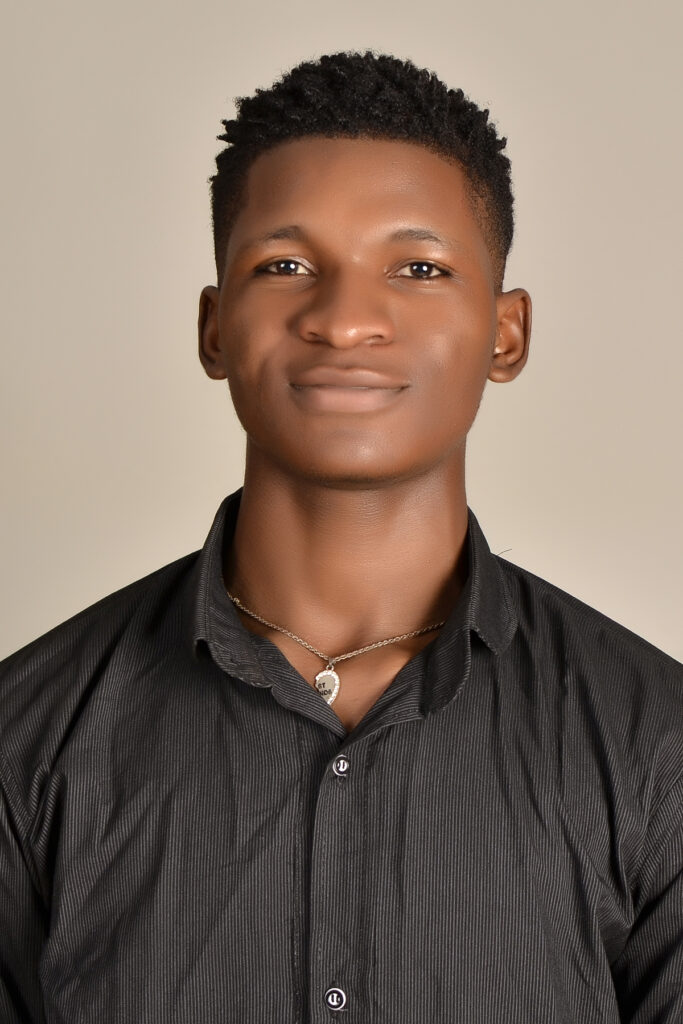
Isaiah Adepoju, 19, is a student of Literature-in-English at the Obafemi Awolowo University, Ile-Ife. He writes for Literature Voices Journal, reads for Adroit Journal, and is the Deputy Editor-in-Chief at The Nigeria Review. He work has been published in the Institute of African Studies NSUKKA, TSTR, Aster Lit Mag, Poetica Review, and elsewhere. Isaiah is a fellow of the Ebedi International Writers Residency, and an alumna of the Olongo Africa Poetry Workshop.
